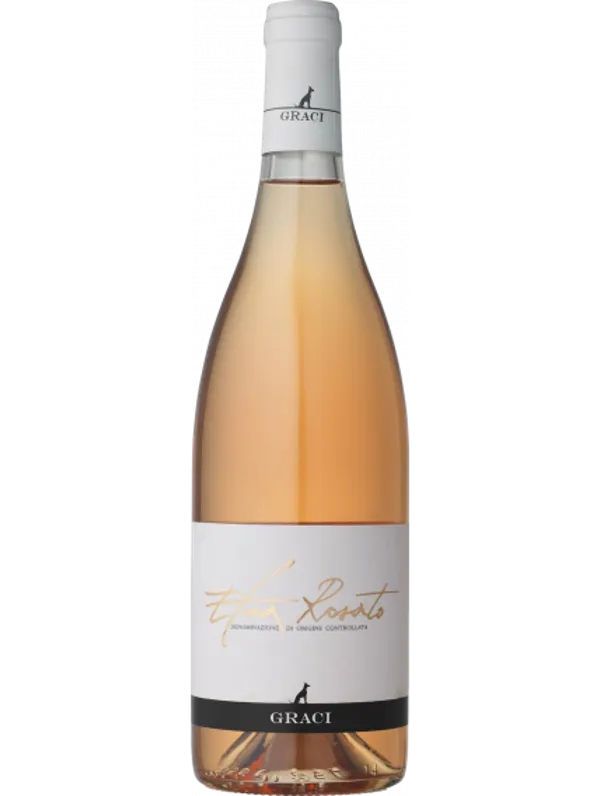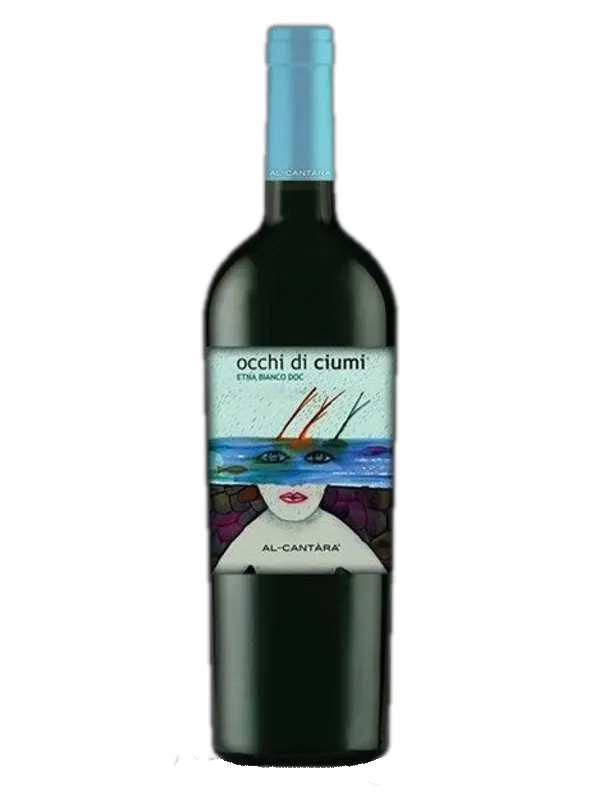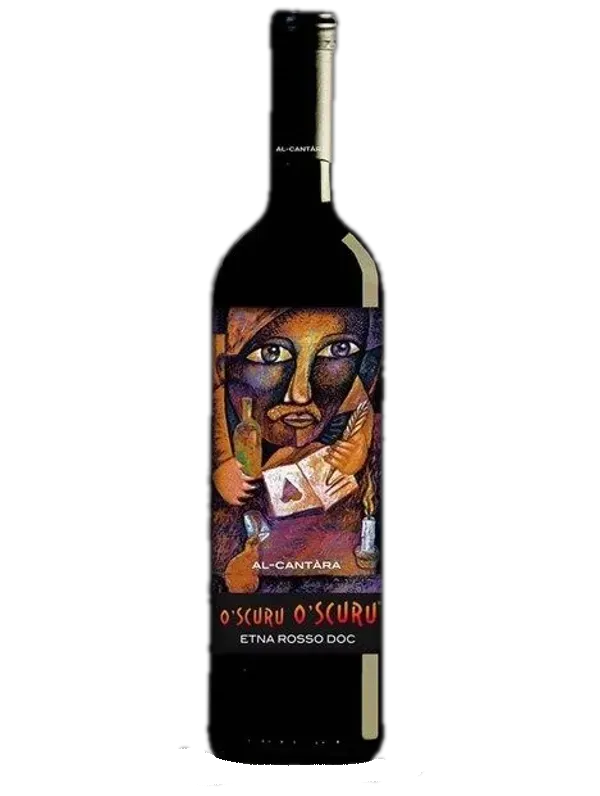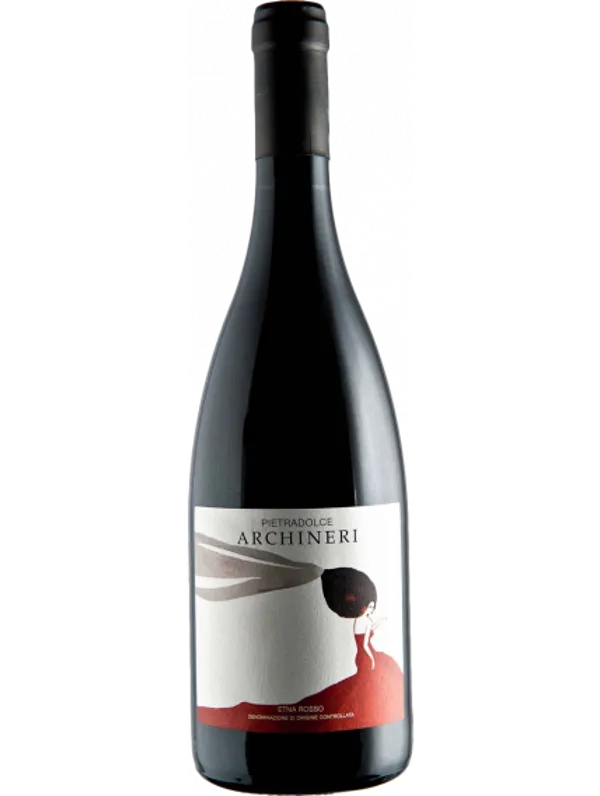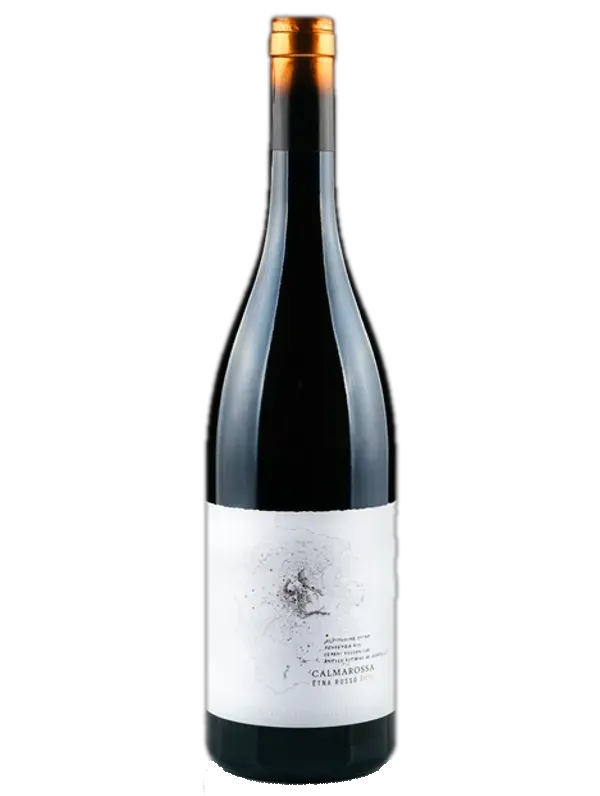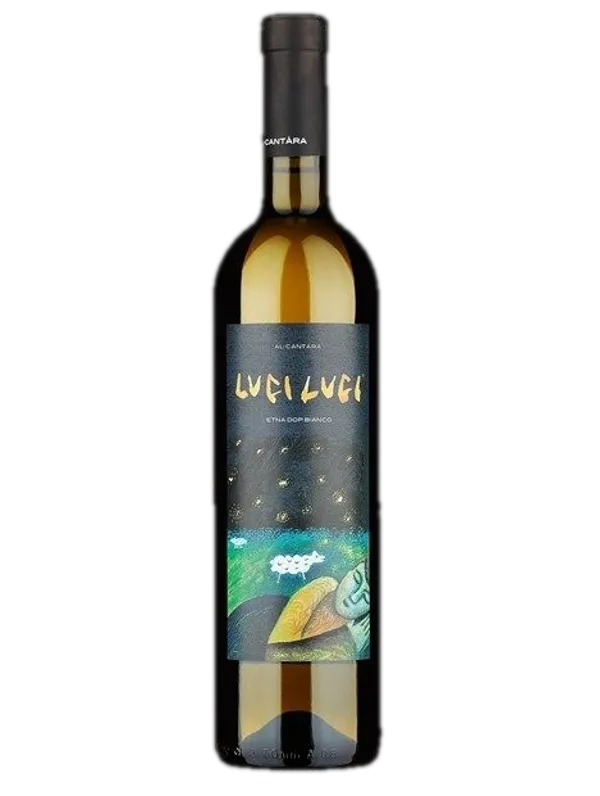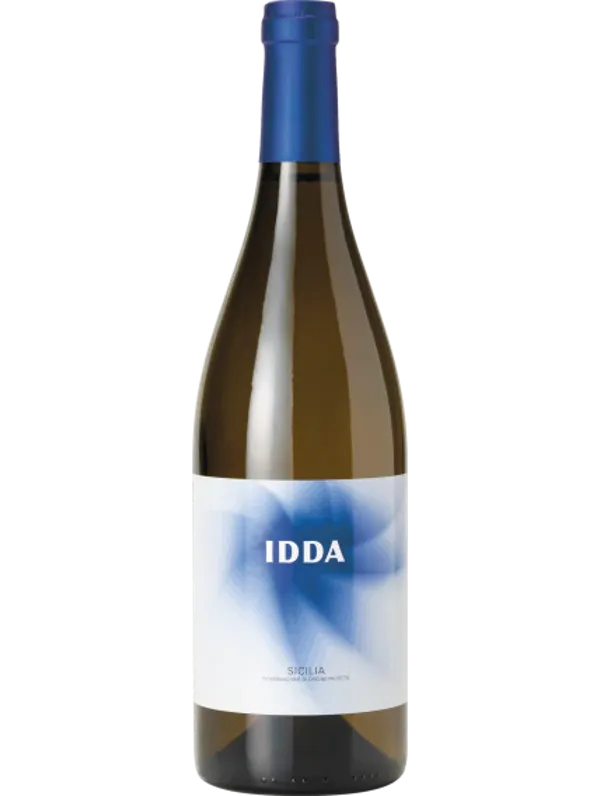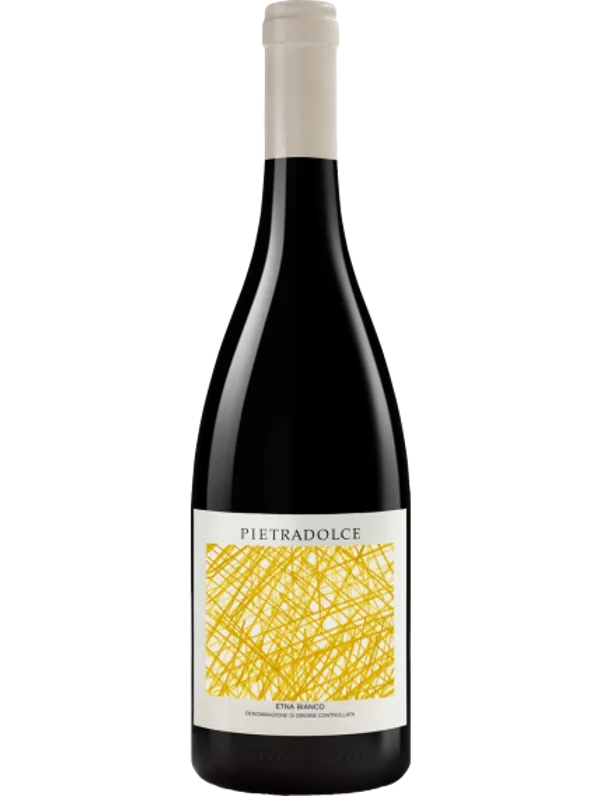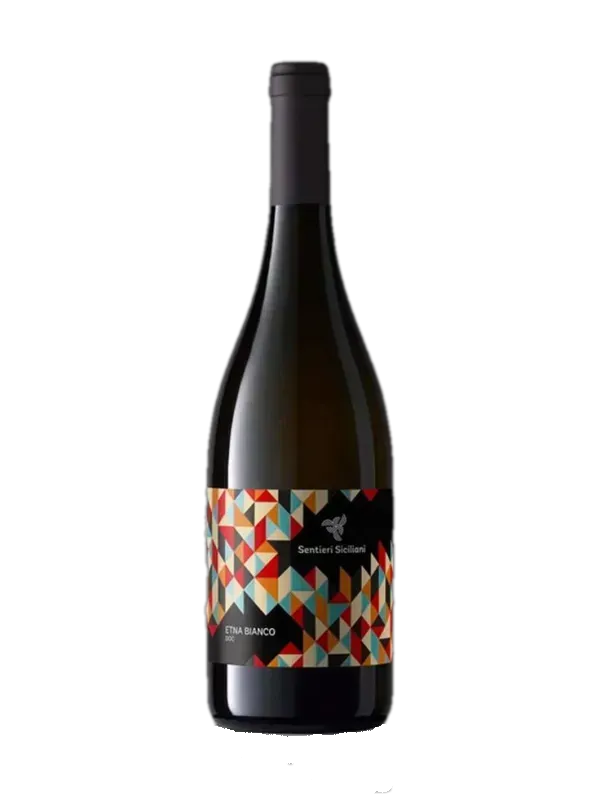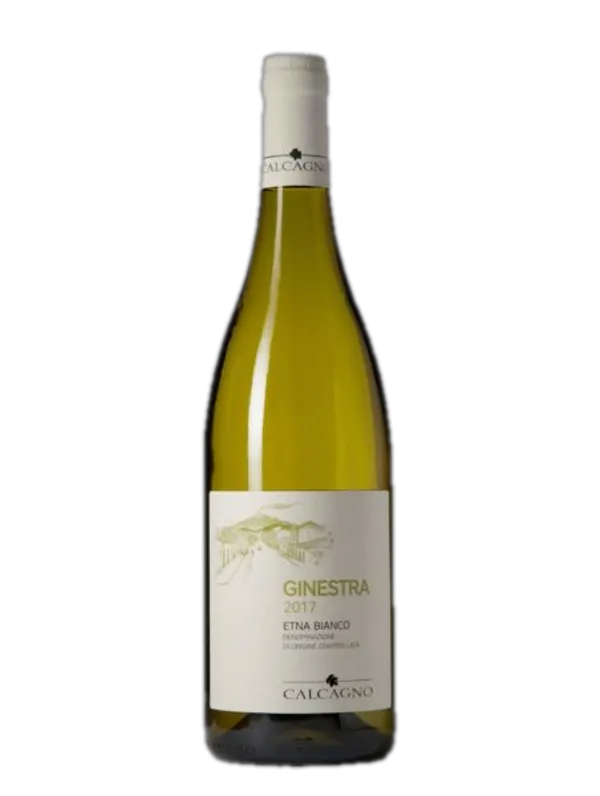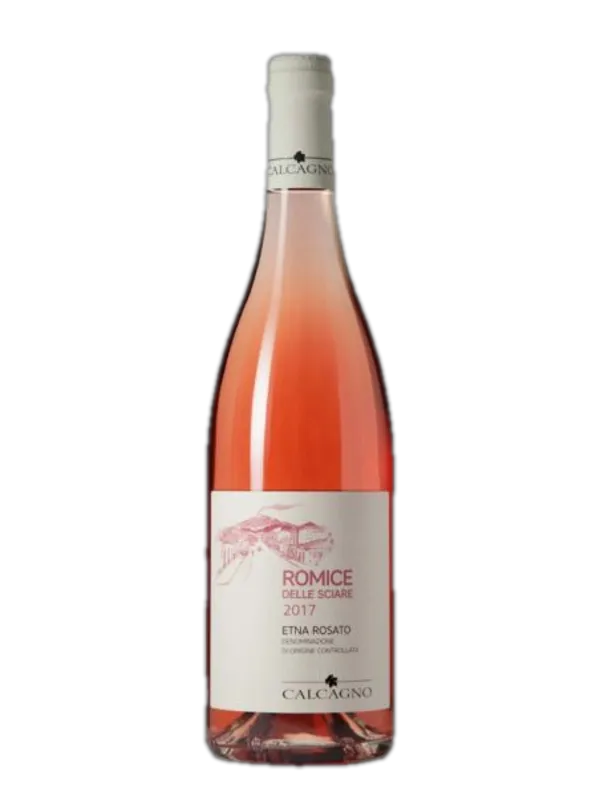Speak to me again about Etna, grape bunches, idleness, laziness, good food, sun. Plant a seed in me
Henry Miller
Etna wines are Italy's answer to those searching for something truly unique in the world of viticulture. Nestled on the slopes of an active volcano in Sicily, these wines offer a tantalising combination of rich flavors, mineral undertones, and a complexity that rivals some of the best bottles from classic regions.
For those in the UK who may be familiar with the structured elegance of Bordeaux or the crisp refinement of a Chablis, Etna wines offer a captivating alternative that you simply cannot ignore. As we delve into the world of Etna's volcanic vineyards, you'll discover why these wines are becoming increasingly popular not just in Italy, but also in Britain's diverse and ever-adventurous wine market.
Fast-Track Your Etna Wine Experience: Bottle Recommendations
Don't have the time to become an Etna wine connoisseur but still want to impress at your next dinner party? We've got you covered. Scroll down to see our handpicked list of Etna red and white wines that pair wonderfully with British cuisine or any meal for that matter.
Graci Etna Rosato
Elevated by Mount Etna's volcanic soil, this 2020 rosé offers a fresh palate of strawberries and herbs. A versatile, cellar-worthy choice.
Read more
Al-Cantara, 'Occhi di Ciumi', Etna, Sicily
Crisp and mineral-rich, this 2022 white wine delights with its spicy undertones and long, saline finish. A sip of Sicilian summer.
Read more
Al-Cantara, 'O'Scuru O'Scuru', Etna, Sicily
A 2019 red, ripe with dark berries and herbal complexity. French oak aging imparts subtle spice. Cellar or enjoy now with red meat.
Read more
Pietradolce Archineri Etna Rosso
This 2018 red boasts high-altitude allure, mimicking a Premier Cru Burgundy but more approachable. Complex yet soft, a truly masterful wine.
Read more
Santa Maria La Nave, Calmarossa, Etna Rosso, Etna
Indulge in this 2018 Etna Rosso from Sicily, featuring 100% Nerello Cappuccio grapes. A red wine offering complex notes for a refined palate.
Read more
Why Wait? Sip on These Etna Wines Today
If you're eager to experience the volcanic magic in a bottle, look no further. Below you'll find a selection of Etna wines — one row dedicated to the robust reds and another showcasing the vibrant whites. Perfect for a sophisticated evening or as a thoughtful gift, these wines are just a click away.
Al-Cantara, 'Luci Luci', Etna, Sicily
An elegant 2019 white, full of forest fruits and rosehip aromas. Vanilla and leather hints add depth. Pure, minerally, and spicy.
Read more
Gaja Idda Etna Bianco
Indulge in a collaborative masterpiece from Gaja and Graci. Bursting with floral and almond notes, this Sicilian white is versatile, from sushi to grilled fish
Read more
Pietradolce Etna Bianco
Savor the nuanced flavors of Sicily's volcanic soil. Refreshing and light, this 100% Carricante offers hints of lemon zest, limes, and honeysuckle. Perfect aperitif
Read more
Sentieri Siciliani Etna Bianco ’21 DOC
An aromatic Etna Bianco with notes of apple, peach, and pear from volcanic soil vineyards.
Read more
Calcagno Ginestra Etna Bianco
Pale yellow Etna white, hints of fruit, well-balanced acidity, pairs perfectly with fish and cheese.
Read more
Calcagno Romice delle Sciare Etna Rosato
A delicate rose petal pink wine with intense fruity notes, smooth and structured, perfect with seafood.
Read more
Geography and Terroir
Mount Etna, Europe's highest and most active volcano, forms the dramatic backdrop for the vineyards that produce Etna wines. Situated on the east coast of Sicily, this volcanic terroir is nothing short of a winemaker's dream, offering a unique blend of mineral-rich soils, varying altitudes, and a distinctive microclimate. The volcanic soil is rich in nutrients like potassium, adding an unusual depth of mineral complexity to the wines. Vines can be found at elevations ranging from 300 to 1,000 meters above sea level, giving winemakers a range of options for expressing terroir-specific characteristics.
The influence of the Mediterranean Sea combines with the altitude to create significant diurnal temperature variations, which contribute to the acidity and aromatic complexity of the wines. If you've enjoyed the crisp acidity of an English sparkling wine on a summer's day, you'll find a comparable vibrancy in Etna's white wines, albeit with an entirely different set of flavours.
It's a challenging environment for viticulture, no doubt, but one that yields wines of remarkable character and individuality. As we explore further, you'll see just how much this unique terroir contributes to making Etna wines an exciting find for any wine enthusiast, especially those in the UK looking for something a bit off the beaten path.
History
The vineyards of Mount Etna boast a viticultural tradition that dates back to antiquity. Greek settlers were among the first to cultivate vines in the region, and their influence remains apparent in the local winemaking techniques and grape varieties. Over the centuries, Etna wines have experienced various periods of prosperity and decline, reflecting the complex history of Sicily itself.
The late 19th century was a challenging period, as the phylloxera epidemic devastated vineyards across Europe. Unlike many other Italian wine regions, Etna was able to recover relatively quickly, thanks in part to its volcanic soil, which provided a degree of natural resistance to the pest. This resilience drew attention and investment, leading to a resurgence of winemaking activity in the 20th century.
Modern Etna wines really began to shine in the late 1980s and early '90s, as local winemakers started to focus on quality over quantity. This transition was marked by a shift towards organic and biodynamic farming practices, as well as the use of indigenous grape varieties, such as Nerello Mascalese and Carricante.
Today, Etna wines are garnering international acclaim and are frequently featured on the wine lists of top British restaurants. For those who appreciate the deep history and rustic charm of a Burgundy, Etna wines offer a similar allure, with the added twist of their volcanic origins.
This storied past, coupled with modern innovations and a unique terroir, makes Etna wines not just a drink, but an experience—one that resonates with both Italian tradition and the British palate's penchant for nuanced, complex wines.
Grape Varietals
Etna wines showcase the best of indigenous Sicilian grape varieties. The star of the show for reds is undoubtedly Nerello Mascalese, a grape that offers a delightful balance between the fruit-forward nature often associated with New World wines and the earthy complexity you might find in an Old World Pinot Noir. Think of it as Italy's answer to the delicate structure of a British favourite, the Pinot Noir.
For whites, Carricante holds court. This local grape variety is primarily used in Etna Bianco and brings high acidity and a mineral profile that resembles the saline freshness of an Albariño or even some English white wines. These traits are heightened by the volcanic soil, lending an additional layer of complexity to the wine.
Less commonly, but still noteworthy, are grape varieties such as Catarratto and Minnella. These grapes often play supporting roles in blends, adding nuances of fruit and texture that enhance the primary grape varieties.
With a growing number of British wine aficionados seeking out lesser-known grape varieties that deliver on complexity and uniqueness, Etna wines and their distinctive grape varieties are perfectly positioned to satisfy that curiosity. Whether you're a Pinot Noir lover or an explorer of indigenous grapes, Etna's varietals offer something for everyone—truly a range worthy of your wine rack.
Flavour Profiles
When it comes to the tasting experience, Etna wines are a sommelier's dream, offering a broad palette of intriguing flavours that engage the senses on multiple levels. For reds, expect a symphony of red fruits like cherries and raspberries, complemented by herbal undertones and a peppery kick. These flavours meld seamlessly with a minerality that is almost tactile—thanks to Etna's volcanic terroir. The resulting taste could be likened to a classic British cuppa in its balance of robust flavours and subtlety, albeit in a vinous context.
For white wines, prepare for a zesty explosion of citrus, green apple, and floral notes, underpinned by that unmistakable mineral quality. It's a far cry from the ubiquitous Chardonnay and more akin to the complexity of a Sancerre or even some of the aromatic white wines now emerging from the UK's own vineyards.
| Reds | Whites |
 Cherry Raspberry
|  Green Apple Floral Notes Citrusy Fruit
|
Don't overlook the ageing potential of Etna wines, either. Reds can exhibit evolving flavours of dried fruit and spice as they age, while the whites can develop intriguing nutty and honeyed notes, not unlike an aged Riesling. So, whether you're savouring them young or letting them mature, Etna wines promise a rewarding journey of flavours that resonate from the first sip to the last.
This diverse and sophisticated flavour profile makes Etna wines a versatile choice for a range of culinary occasions. Whether you're enjoying a Sunday roast or opting for a ploughman's lunch, these wines offer a harmonious complement, capturing the British penchant for layered flavours and gastronomic adventure.
Winemaking Techniques
When it comes to winemaking, Etna offers a blend of tradition and innovation that's hard to resist. The extended growing season afforded by the volcanic terroir allows for a longer hang time for grapes, ensuring they reach optimal maturity. One of the standout techniques is extended skin contact, especially for white wines, a practice that gives them their rich and complex flavors. This is similar in principle to the maceration process used in the making of orange wines, which, as it turns out, are experiencing a surge of interest among British oenophiles keen on experimental styles.
Fermentation often occurs in a variety of vessels, from traditional wooden casks to modern stainless-steel tanks, depending on the winemaker's desired profile. Some producers even employ amphorae, echoing ancient winemaking methods, to yield wines with a unique minerality and texture.
Interestingly, the ageing process for Etna reds often involves less new oak than you might find in some Bordeaux blends, allowing the fruit and terroir to shine through. This may resonate with British wine drinkers who appreciate subtlety over overt oakiness.
While Etna doesn't have a one-size-fits-all approach to winemaking, the focus is invariably on showcasing the unique characteristics of the region’s terroir and grape varietals. It's this combination of time-honoured techniques and innovative practices that makes Etna wines such a thrilling discovery, especially for those in the UK seeking a sip outside the usual suspects.
Food Pairings
When it comes to food pairings, Etna wines are delightfully versatile, thanks to their unique flavour profiles and well-balanced acidity. For those looking to elevate their culinary experiences, be it a quintessential British afternoon tea or a hearty Sunday roast, Etna wines offer some exciting possibilities.
Etna reds, with their rich red fruit notes and earthy undertones, pair exceptionally well with meat dishes. Think succulent lamb roasts or a classic beef Wellington. The wines' subtle spiciness can also enhance the flavour of a good-quality British sausage or a spiced meat pie.
As for Etna whites, their high acidity and mineral qualities make them a fantastic match for seafood, offering a Mediterranean twist to a traditional British fish and chips. Their zesty characteristics also pair wonderfully with lighter fare such as chicken salads or ploughman's lunch, where the wine's acidity can cut through the richness of the cheese and the savouriness of the cold meats.
Don't overlook vegetarian options, either. The complexity and mineral notes of Etna wines can elevate simple dishes like a vegetable tart or a cheese and onion pie, making them feel like a gourmet experience.
For those who relish the customary British cheese board, Etna wines offer an interesting alternative to the usual port or sherry. An aged Etna red can stand up to strong, crumbly cheeses like Stilton, while a younger white could be delightful with softer cheeses like Brie or Camembert.
In short, whether you're indulging in British classics or experimenting with more international flavours, Etna wines offer a range of pairing options that can complement and even elevate your meals. It's this adaptability that makes these volcanic wines an excellent choice for the diverse and adventurous palate often found in the UK.
Conclusion
From their unique volcanic origins to their remarkable flavour profiles and food-pairing versatility, Etna wines are truly a revelation for any wine enthusiast, including those in the UK with a taste for adventure. Their blend of Old World sophistication and New World audacity sets them apart, offering a compelling alternative to the more established wine regions. For those who are used to the traditional comfort of a Bordeaux, the crisp refreshment of an English sparkling wine, or even the edgy appeal of an orange wine, Etna wines provide a thrilling detour on the global wine map—one that you'll likely want to revisit time and time again.
Whether you're a seasoned sommelier or someone looking to broaden your wine horizons, the volcanic vineyards of Etna offer a rich tapestry of tastes and experiences waiting to be explored. And with their growing presence in British wine shops and restaurants, getting your hands on a bottle has never been easier.
So the next time you're considering a wine selection, why not go beyond the familiar and embrace the volcanic allure of Etna wines? They are, without a doubt, one of Italy's most exciting vinicultural offerings, resonating with both the discerning and the daring palates commonly found in the UK.
From the slopes of Europe's most active volcano to your wine glass, Etna wines promise an unforgettable journey—one that transcends geography and tradition to deliver a sip of something extraordinary. Cheers!
